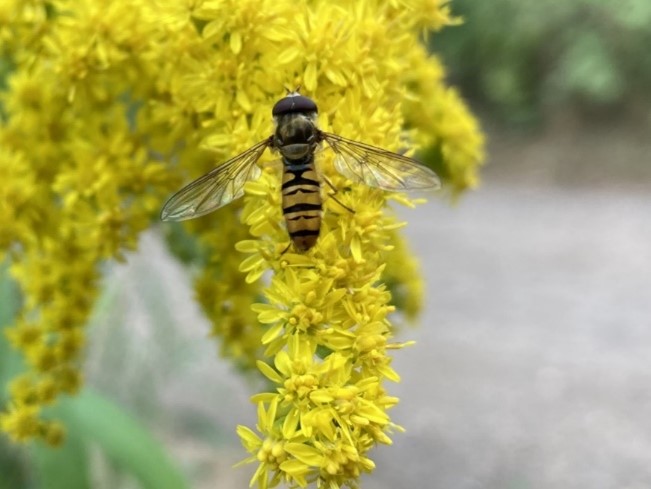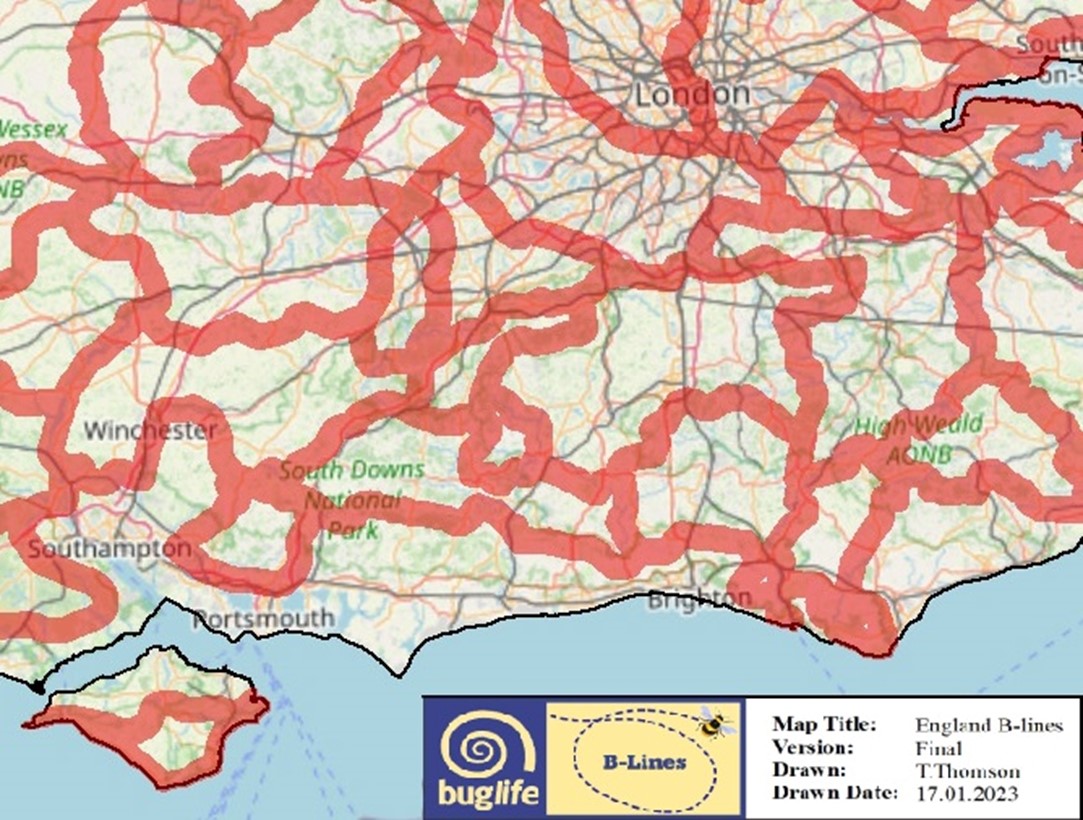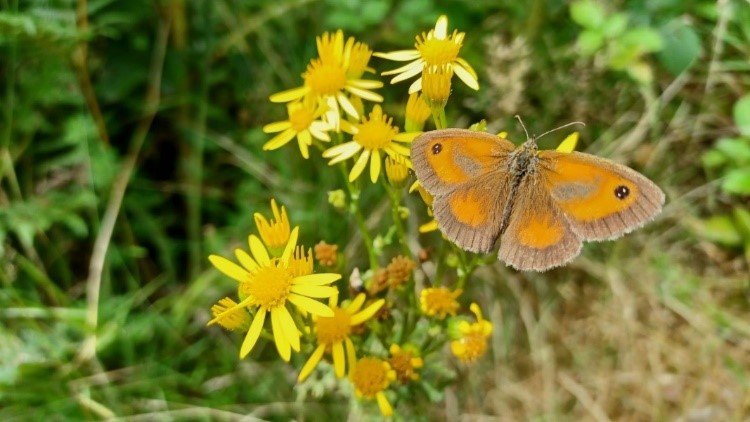Reviving Pollinator Habitats
Haslemere’s Insect Superhighway
Did you know that insects make up the greatest proportion of life on Earth? They underpin food chains, pollinate most of the world’s crops, and provide natural pest control services. Without insects, life on earth would collapse and the survivability of humanity on our planet would be threatened.
Recent research suggests that in the UK flying insects have declined by 60% in the past 20 years1. This reflects a worldwide trend which has serious knock-on consequences for other wildlife and for people. The main causes of decline include habitat loss and fragmentation, climate change, pollution of rivers and streams, use of pesticides, and development of wild spaces. Over 97% (an area the size of Wales) of all flower-rich grasslands have been lost in England alone since the 1930s, reducing pollen and nectar sources and leading to a serious decline in the wildlife depending on wildflower-rich habitat.


The conservation charity, Buglife UK is providing an innovative solution to this problem through its Biodiversity-Lines Project2. The ‘B-Lines’ are a series of ‘insect superhighways’ running through our countryside and towns, along which Buglife and its partners are restoring and creating a series of wildflower-rich habitat stepping stones. These link existing wildlife areas together, forming a network that will weave across the UK landscape and benefit pollinating bees and butterflies as well as a host of other wildlife.
The good news is that Haslemere sits in the middle of a major ‘B-Line’ and we are working with Buglife to identify possible sites across the town that could contribute to this project. Key criteria are that the site should sit directly inside or within 500m of the B-Line and should be suitable for creating, restoring or enhancing as wildflower-rich habitats. Additionally, site owners/managers will be required to enter into a 10-year management plan which includes no/minimal use of agrochemicals. Ideally, an existing community infrastructure that can help support site monitoring and management should also be in place.
Several candidate sites have already been proposed which may be eligible for B-Line funding and support. The next step is to start discussions with site owners and managers to see how we can improve Haslemere’s Super Insect Highway.
The Haslemere B-Line initiative offers opportunities for everyone to play their part and help conserve our native pollinators and other wildlife. If you are interested in finding out more, please get in touch by contacting Dr Philippa Guest, Chair HBG, at info@haslemerebiodiversity.org.uk.
1 https://cdn.buglife.org.uk/2022/05/Bugs-Matter-2021-National-Report.pdf;
2https://www.buglife.org.uk/our-work/b-lines/
Author bio
Dr Philippa Guest is Chair of the Haslemere Biodiversity Group (HBG) and has lived in Haslemere for 27 years. She has worked for many years as a consulting expert in sustainable agriculture. Philippa is also part of Haslemere Vision, the community group that supported the Town Council in developing the Neighbourhood Plan. The HBG was originally established to develop evidence to support biodiversity policy in the Neighbourhood Plan.
